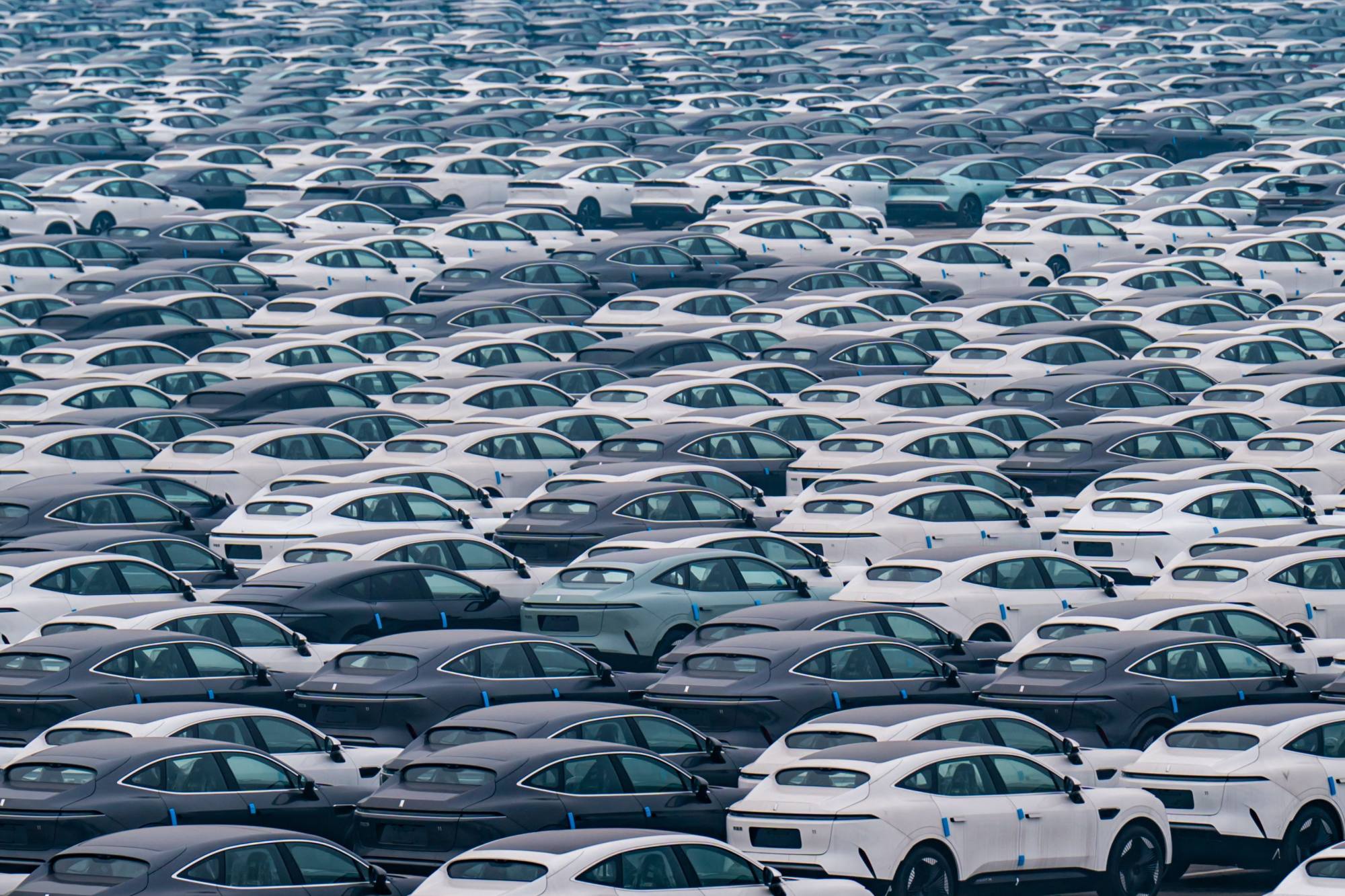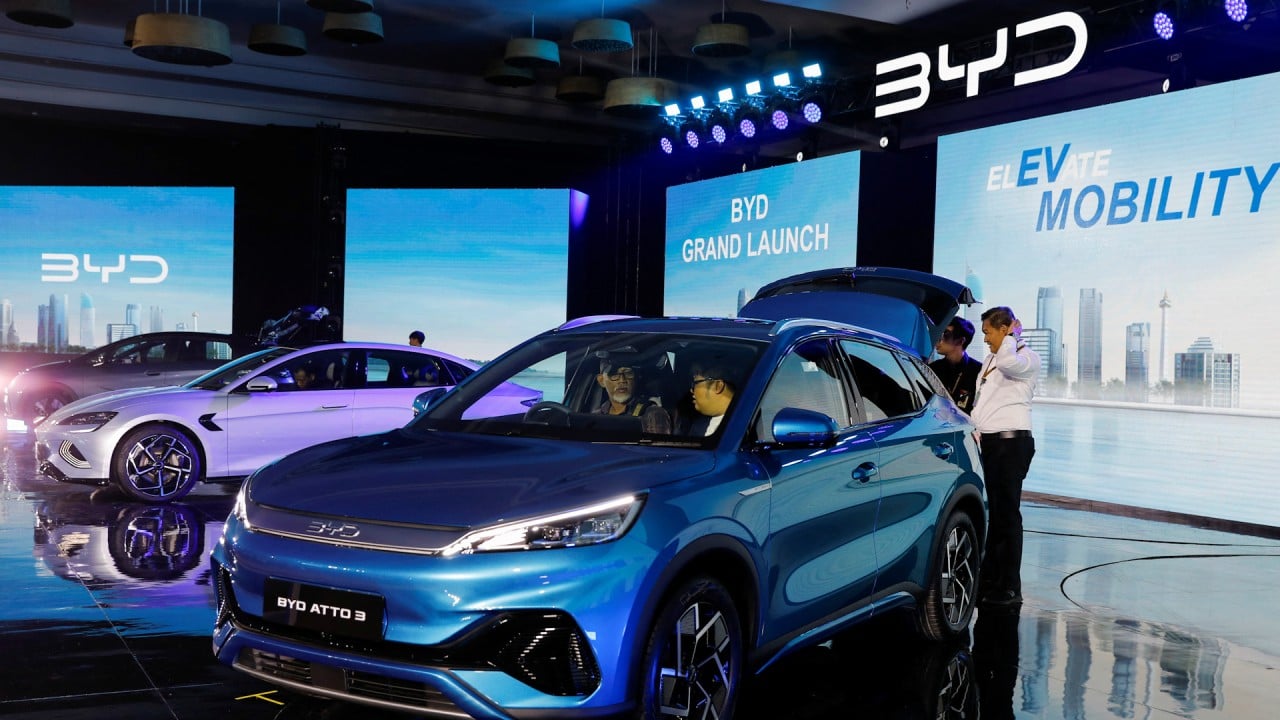
23 Jan Chinese car dealer Guangdong Yongao’s collapse signals another bruising year for stagnating market
A Chinese car dealership that operated as many as 80 stores across the southern province of Guangdong went bankrupt last week, in a sign the intense competition that has roiled the world’s biggest car market may extend into another year.
Salespeople from Guangdong Yongao Investment Group notified customers on January 17 that the company had collapsed and orders are suspended, while employees are waiting to be paid outstanding wages, Chinese media outlets including National Business Daily newspaper reported. The dealership sold about half a dozen marques, including Honda Motor, Volvo Car and Guangzhou Automobile Group’s electric-vehicle brand Aion.
Photos shared on social media showed about 20 yellow tow trucks set to be dispatched last Wednesday, with users saying that they had been sent by banks to repossess vehicles. Bloomberg News was not able to verify the images.
Yongao’s ordeal shows how dealers are being squeezed on multiple fronts. High sales targets set by carmakers are pressuring them to get cars out the door while a slowing Chinese economy has seen many customers delay purchases in the hope of deeper discounts. Just over a third of the country’s car distributors were able to achieve their sales targets last year, according to the China Automobile Dealer Association.

The company said on Friday three years of Covid curbs, changes in the car market and insufficient risk controls had tipped it into a crisis, media outlet Netease News reported, citing a statement. Yongao has set up a management task force and will try to ensure car deliveries to customers, and pay outstanding wages. Some dealerships are closed and some vehicles have been moved as part of a contingency plan, according to the report.
There were signs of distress at Yongao as early as April last year, when employees lodged complaints with the Dongguan government about the company withholding wages, NBD newspaper reported.
Calls to Yongao by Bloomberg News were not answered.
China’s car sales have stagnated since 2017, when they reached a peak of 24 million vehicles. Deliveries for last year came to 21.7 million, according to the China Automotive Technology and Research Center.
Yongao customers have been left with little information about what is going to happen to their cars. Tan, who lives in the city of Dongguan and asked to be identified only by his surname because of privacy concerns, said he has not been contacted beyond a notification on January 17 that Yongao had gone bankrupt and paperwork for his car would be suspended.
He bought, and drove home, a Lynk 03 sedan in December but has been chasing up the dealership for weeks to finish the registration paperwork and pay a 14,000 yuan (US$1,945) vehicle-purchase tax. That has complicated plans to drive back to his hometown for Lunar New Year next month, and he now needs to renew the temporary licence plate that is due to expire on January 28 to keep the car on the road.
Tan said he has been told to wait and see what possible government intervention can achieve. “I feel angry and helpless,” he said.
State broadcaster CCTV reported on Friday that the Dongguan government has set up and dispatched a task force to Yongao’s offices to collect information. It will also follow up on vehicle delivery status and prioritise protecting the rights of consumers who have fully paid for their cars, it said.
EV maker Aion said its distribution and sales departments are actively responding to the issue at Yongao and an initial assessment showed a relatively minimal impact to the brand. Aion will work with the dealer to protect consumer rights, according to a company representative.
Zhejiang Geely Holding Group, which controls Volvo and Lynk brands, and Dongfeng Motor Group, which operates a joint venture with Honda, did not respond to requests for comments.

